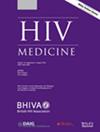Strategies for strengthening same-day ART initiation, tracing people living with HIV lost to follow-up and viral load monitoring mechanisms in Ethiopia
Abstract
Introduction
To meet the intended goal of eradicating the Human Immunodeficiency Virus (HIV) epidemic by 2030, the Joint United Nations Program on HIV/Acquired Immunodeficiency Syndrome (AIDS) has set 95-95-95 targets. Ethiopia has made progress towards these targets, but challenges continue to persist.
Objective
To evaluate the current same-day antiretroviral therapy (ART) initiation status and to develop strategies for strengthening same-day ART initiation, tracing HIV/AIDS patients lost to follow-up, viral suppression and retention of patients in HIV care.
Methods
A three-phased (Phase 1, Phase 2 and Phase 3) exploratory sequential mixed methods design was employed in two healthcare facilities in Ethiopia. Strategies were developed based on qualitative findings from in-depth cell phone interviews with 30 healthcare providers, quantitative results from document analysis of 332 clinical records, integration of Phases 1 and 2, application of a theoretical framework, logical reasoning and review of relevant literature.
Results
Phase 1 findings highlighted key barriers to same-day ART initiation, being patient resistance due to fear, stigma and religious concerns, as well as challenges with enrolment procedures and overburdened healthcare providers. Phase 2 results indicated varying retention rates over different time intervals: 35% at 6 months (n = 49), 81% at 12 months (n = 50), 89% from 13 to 18 months (n = 63) and 94% at 24 months (n = 34), with an overall retention in HIV/Care at 59%. Additionally, viral suppression rates were observed to be 93% at 6 months, 95% at 12 months and 86% at 24 months. In Phase 3, 15 strategies were adopted after validation by healthcare experts from HIV programmes at the Federal Ministry of Health and regional health bureaus by using the modified Delphi technique.
Conclusion
This study contributed to the understanding of same-day ART initiation in Ethiopia by identifying key challenges that are patient reluctance, socio-economic factors and adherence issues and providing actionable strategies and recommendations for improving same-day ART initiation through targeted interventions and patient-centred strategies.

 求助内容:
求助内容: 应助结果提醒方式:
应助结果提醒方式:


